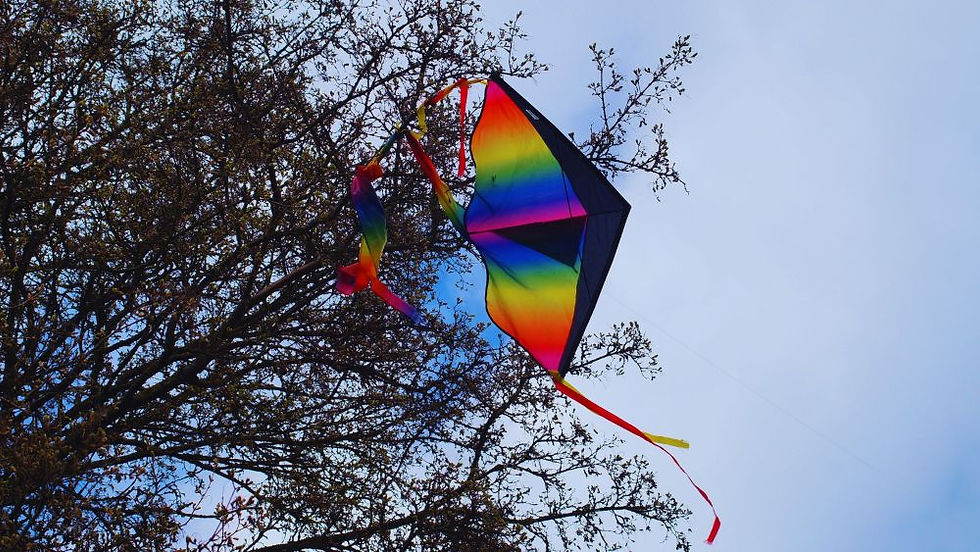Dealing With What Is Commonly Perceived as Failure
- Brainz Magazine

- Sep 29, 2025
- 4 min read
Written by Tatjana Gaspar, Coach, Consultant & Author
Tatjana Gaspar is a certified systemic coach and online trainer who uses methods that focus on the clients’ individual goals, thus aiming at improving their business or life situation. She is also the CEO of the Latin American Chamber of Commerce in Switzerland, where she organizes events, hosts webinars, and is responsible for operational and financial issues.

Failure. The very word carries a sting. We associate it with defeat, disappointment, or even disgrace. Yet if we pause for a moment, we realize that what we call “failure” happens far more frequently than the big moments of visible success. We stumble in everyday conversations. We misjudge opportunities. We lose games, contracts, jobs, or relationships. Some of these moments crash down suddenly, like a storm that sweeps through without warning. Others arrive slowly, dragging themselves into our lives like an inevitable tide, a corporate crisis unfolding over years, or a marriage slowly unraveling.

What unites these experiences is not their drama but the emotions that follow when our brain processes them, shame, guilt, grief, anger, or despair. Some of us point the finger inward, harshly blaming ourselves for not being smarter, stronger, or quicker. Others look outward, seeking someone or something to hold responsible. And still others simply collapse under the weight of it, letting the idea of “failure” define who they are. None of these reactions is helpful.
But what if we shifted the lens? What if failure were not an enemy, not a stain on our record, but a natural element in the experiment of living? Think of how often a child falls before learning to walk. Imagine the thousands of attempts an inventor makes before the one idea finally works. These are not catastrophes, they are steps. Each so-called failure is part of a pattern that helps us grow, not by shaming us, but by sharpening our consciousness.
When viewed this way, failure becomes a teacher. A setback can carry the quiet invitation to reframe our approach, to reshape our methods, to reboot our energy, to rethink our strategy. It is not the final chapter, only a pause in the narrative. The real question is not whether we will fail, but how we will respond when we do.
Dealing with a setback depends less on the event itself than on our inner strength. Mental resilience is not something we are handed. It emerges from the intersection of three things, our value system, our unique superpowers, and our basic character traits.
Our values provide the compass. If we measure our worth only by external markers, titles, money, applause, then every slip feels like a verdict. But if our values are anchored in growth, integrity, curiosity, or service, then failure loses its power to wound us. It becomes simply a signpost, “This way didn’t work. Try another.”
Our superpowers, those qualities we carry almost without noticing, form the second pillar. Perhaps it is creativity, empathy, analytical skill, or perseverance. When a project collapses or a plan falls apart, these superpowers remain intact. They are the steady ground on which we can stand to rebuild. Remembering them keeps us from confusing a temporary outcome with a permanent identity.
Finally, our character traits, such as patience, courage, humility, or adaptability, decide how gracefully we handle the moment. Some people panic and dramatize, magnifying the failure until it overshadows everything else. Others withdraw, hiding their wounds out of shame. And then there are those who choose a quieter path. They accept the setback without spectacle, learn the lesson, and move on. Growth often happens not in loud declarations but in silence, in the calm decision to rise again without fanfare.
To embrace failure as part of the journey is to claim freedom. We free ourselves from the tyranny of perfection. We free ourselves from the exhausting need to always win, always shine, always prove something. Life is not an endless series of triumphs. It is a mosaic of attempts, some successful, some not, that together form the larger picture of who we are becoming.
So, the next time failure pays you a visit, resist the instinct to make it a drama or to blame yourself. Step back. Breathe. Ask what the universe is asking you to see in this moment, to shift, to strengthen? Remember your values, rely on your superpowers, and trust your character. Failure is not the end of your story, but the chance to write a new chapter. It is a comma, not a full stop on your life journey, a quiet space in which to prepare for what comes next.
Tatjana Gaspar, Coach, Consultant & Author
Tatjana Gaspar is a certified systemic coach and online trainer who uses methods that focus on the clients’ individual goals, thus aiming at improving their business or life situation. She is also the CEO of the Latin American Chamber of Commerce in Switzerland, where she organizes events, hosts webinars, and is responsible for operational and financial issues. Before coaching, she spent 20 years in international wealth management and leadership positions with different banks in Zurich. Initially, Tatjana obtained a degree in Hispanic and Russian literature and history from the University of Geneva. She is a firm believer in lifelong learning and is fluent in seven languages.









